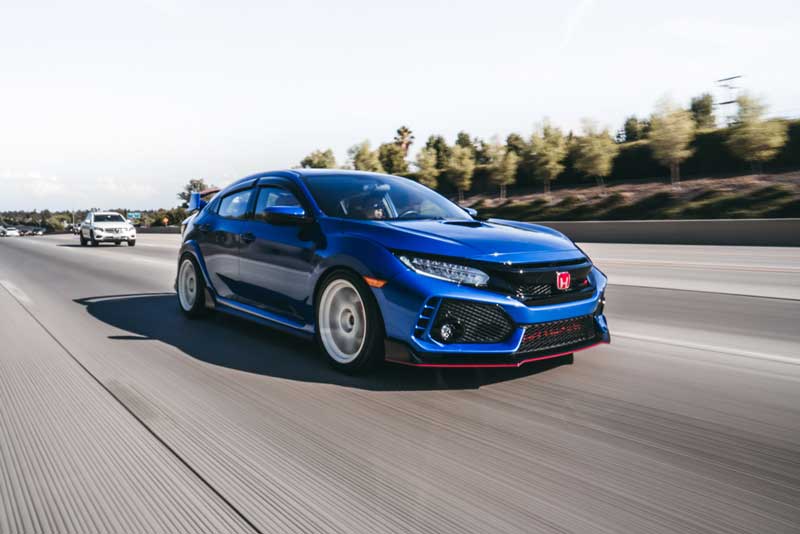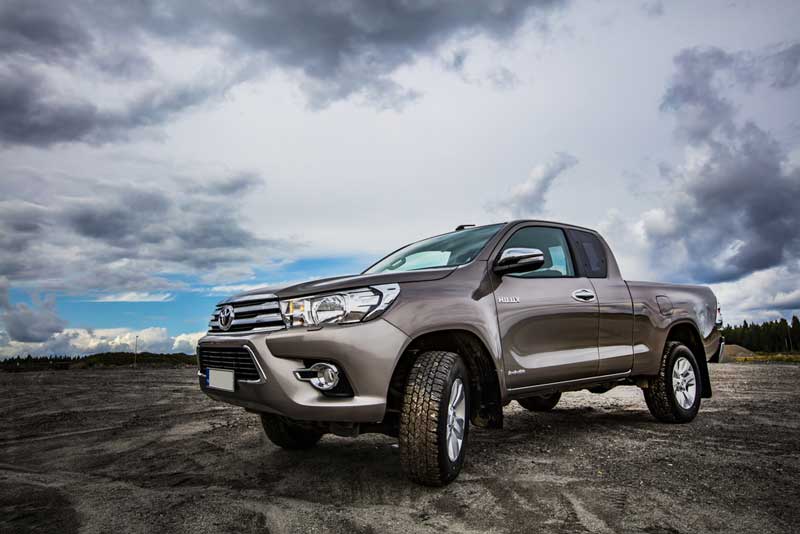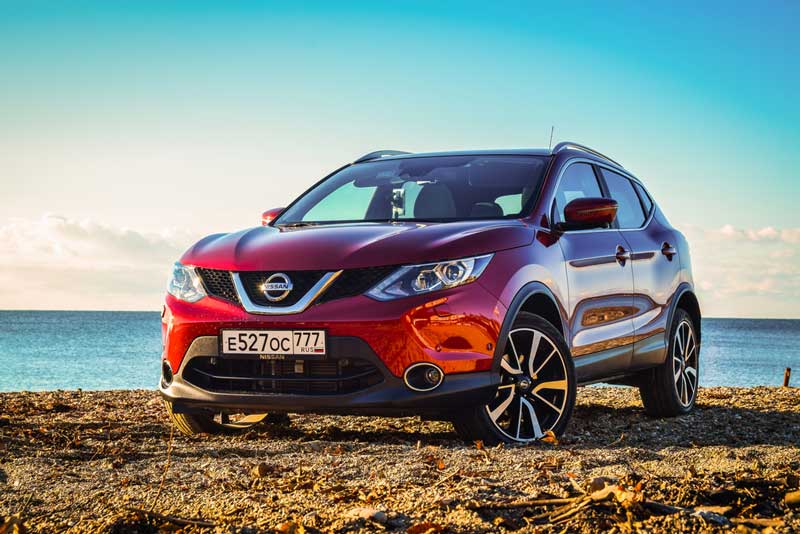For many years, the US auto market has been dominated by Japanese automakers, who enjoy much higher sales compared to European & even certain domestic companies.
It has been the debate or comparison of Toyota vs Honda vs Nissan. The question is which among Honda, Nissan, and Toyota is the greatest this year.
The most excellent way to characterize Japanese brands is with the three words dependability, affordability, and innovation.
Toyota is nevertheless regarded as the greatest of the three brands because it offers excellent quality and affordability that no other company can match. Honda comes in second place with a large selection of competitive types, while Nissan comes in third.
In this article, we would find out more including their history, advantages, and disadvantages, specifications, and characteristics.
Toyota History
Sakichi Toyoda created the first mechanical loom in the world and founded the Weaving company & Toyoda spinning in 1918, where Toyota got its start in the weaving business of Japan. Because a loom would stop and wouldn’t continue to produce faulty cloth and use up the thread if an issue arose, his method reduced faults and enhanced yields.
The Toyota Production Method relies heavily on the Jidoka concept, which calls for engineering machinery to halt and alert users to issues immediately.
The loom so impressed the Platt Brothers, a British company, that they paid £100,000 for the production & sales rights in 1929. Sakichi handed his son named, Kiichiro, the money so that he might advance automobile technology at Toyota.
The Model AA, the company’s first-ever passenger automobile, was introduced in 1936, and the Toyota Automobile Company was established in 1937.
In addition to its factories, affiliates in japan, & manufacturing subsidiaries, Toyota now produces vehicles and parts under the Toyota & Lexus brands worldwide. Production of Toyota cars outside of Japan started in Brazil in 1959.
Take a look at Toyota’s past, beginning with the founder, Sakichi Toyoda’s birth. Then, it charts the company’s growth from when Toyota Automobile Corporation was founded in 1937 until the sale of the 2,000,000th Prius hybrid.
Also Read: How To Reset Honda Accord Radio Code Error E
Honda History
Honda Motor Company, Limited. It is a publicly traded Japanese multinational conglomerate corporation best known for producing cars, airplanes, power tools, and motorcycles.
Soichiro Honda founded Honda in 1948 after developing an effective piston model for autos. He was inducted into the Automotive Hall of Fame as a result. Honda’s T360 compact pick-up truck, which went on sale in August 1963, was their first manufacturing vehicle.
The S600 vehicle for sports and the little N360 sedan were both introduced by Honda in 1965. They would release the enduring Civic model in 1972.
Honda made strides in several technological areas, including fuel economy, safety, and emissions reduction, during the 1970s & the early 1980s to diversify its product offering and increase its global presence.
Honda debuted the Acura brand as their luxury car subsidiary in the US market in 1986. They would increase their product selection in the ensuing years with well-known models, including the Prelude, CR-V, and Accord.

Nissan History
Masahiro Hashimoto launched Nissan as Kwaishinsha Motor vehicle Works in 1911, marking the company’s beginning. The DAT, an initialism of the initials of the three investing partners, was the company’s first vehicle three years later.
During the 1920s, Nissan underwent several name changes; Nissan Vehicle Company wasn’t used for the first time until 1934.
In 1931, Japan Industries, or Nihon Sangyo, united with Nissan Vehicle Company to form Nissan.
Yoshisuke Aikawa, Nihon Sangyou’s CEO was eager to launch the company’s auto business, so once other owners were less motivated, Aikawa bought them out & started concentrating on constructing Nissan production facilities.
Nissan kept producing the Datsun cars they had been making for years, along with trucks and aircraft for the Japanese military.
In addition, Nissan collaborated with several automakers to build cars for them after the war, including Austin Vehicle Corporation in the 1950s & 1960s & a merger with Prince vehicle Corporation in 1966, this added models to the Nissan roster that are yet produced today.
Following the conclusion of the Korean War, anti-communist emotions made 1953 a pivotal year in Nissan’s history. The labor union at Nissan reacted harshly, firing hundreds of employees and even ordering the arrest of union officials. But, finally, a new partnership emerged, aiding Nissan’s rapid technological expansion.
When Nissan became aware that the little Datsun would occupy a void in the US and Australian auto markets, it expanded globally.
Nissan debuted vehicles at the Los Angeles(LA) Auto Show in 1958 before establishing a US subsidiary in 1960. By generating more than 400,000 automobiles annually by 2007, a plant constructed in England became the greatest-producing facility in Europe.
Cars are sold by Nissan worldwide, and it also operates plants there. Nissan is particularly well-liked in China, selling more than 500,000 vehicles in 2009.
Since its founding more than a century ago, Nissan has been among the world’s most well-known and cutting-edge companies. For years to come, Nissan intends to maintain its position as the industry leader in terms of technology & design.
What Are the Advantages of Having any Toyota?
The business has a lengthy history of achievement and invention. In 1997, it unveiled the Prius, the first hybrid vehicle to be mass-produced.
Toyota is renowned for both quality and dependability. Forbes magazine named it the world’s most valuable automobile brand in 2015.
The advantages of having a Toyota are numerous. First off, Toyota cars are highly dependable and hardly ever have significant issues. They also offer the most technologically advanced hybrids available, which is a factor that is becoming more & more crucial in the electrification process.
They are made to last, second. Today’s Toyotas still run well after more than two hundred thousand miles on the road.
Third, Toyota vehicles hold their quality well, so if you ever decide to sell your car, you can anticipate a high return on your investment. Finally, Toyotas have good fuel efficiency, which can help you economize over time.
Toyota is a fantastic choice if you seek a high-quality and trustworthy vehicle. With a business that has such a strong track record of accomplishment, you can’t go wrong.
What Are the Advantages of Having a Honda?
The purchase of any Honda is a wise investment because you can expect good value for your money in terms of fuel efficiency, resale value, dependability, and well-done construction.
Since it started making great cars about seven decades ago, Honda has continuously taken first place in polls and received accolades in almost every category.
It would help if you didn’t have any trouble finding what you’re searching for, thanks to Honda’s wide range of vehicles, which range from potent sports vehicles to roomy minivans.
So much as the less-priced versions can seem like luxury cars thanks to their reputation for cutting-edge innovation and technology. As a result, Honda is among the top brands available, whether purchasing new or old.
The Accord, Insight, and Odyssey are three(3) of the six(6) Honda models to receive the highest TOP SAFETY PICK+ (TSP+) certification from the Insurance Institute for Highway Safety (IIHS) this year.
The 2021 Accord, 2 Civic variants (Sedan & Hatchback), Insight, Odyssey, and CR-V each earn the top score of “GOOD” in all 6 IIHS crashworthiness trials, helping them to achieve the highest rankings.
Furthermore, all are equipped with Honda Sensing® driver assistance and safety technologies, receiving “SUPERIOR” ratings for preventing car-to-car frontal collisions.
What Are the Advantages of Having any Nissan?
When considering a Nissan purchase, you can buy from a reputable dealer or a private seller. The benefits of purchasing from a private seller include lower prices & the absence of the pressure of a pushy vehicle salesman.
In the long term, purchasing a vehicle from a dealer is usually wiser. Here are five reasons to buy from a dealer if you want a hassle-free transaction and a top-notch car that will satisfy you for many years.
More Choices
Your choices are constrained if you purchase a vehicle from a private seller. Most private vendors only have a few cars for sale at any moment. Look for a trustworthy private seller selling the type you want for weeks or months.
When you purchase a vehicle from a dealership, you can go through a much more extensive selection of cars to choose the one that’s right for you.
Additionally, there are more trustworthy dealers than trustworthy private sellers. Furthermore, assessing a dealer’s reputation is more straightforward than determining a remote seller’s reliability.
If you go with a private seller, you face the danger of transacting with an unreliable vendor since you might only realize your error once it’s too late.
Financing Options
Most private dealers only accept payment in full on the day you purchase a car. Even if a remote seller agrees to work with you to create a payment schedule, the arrangement you come to will likely be shaky and put you at risk of running into further issues down the road, such as astronomical interest rates or even outright scams.
A dealer is a better option for your budget if you don’t have enough cash to pay the whole amount for a car upfront. Instead of coming up with all the money at once, most car dealerships provide a variety of financing alternatives to help you pay for the car you purchase over time.
Post-Sale Service
Most private sellers won’t want to know about any issues you have with your automobile after you take it off their hands, and they are under no duty to give you any service after you buy a car from them. This could leave you stranded if your new vehicle develops issues.
Dealerships, on the other hand, provide a wide range of after-purchase services to ensure that you are satisfied with your vehicle once you take it home.
In addition, since their reputation rests on your satisfaction, most auto dealers are willing to speak with you and take any other steps necessary to ensure that you are as happy as you can be with your choice of vehicle.
Even after you purchase the automobile, many dealers offer warranties, including replacement parts for your vehicle and free or significantly reduced maintenance.
These warranties keep you from paying more if your car develops problems or needs a replacement part soon after you purchase it.
Less Paperwork
When you purchase a vehicle from a private seller, the documentation associated with transferring the title and registration of the car over to you is exclusively your responsibility and that of the seller. This pile of paperwork may be a huge time waste and an irritating annoyance.
The paperwork for your car purchase is much more complicated to complete on your own or with a private seller, and there is also a more excellent room for error. However, professional vehicle dealers have assisted countless customers in successfully filling out the same paperwork before you.
Most dealers handle all the complicated paperwork for you and only have a few spots marked for you to sign on the dotted line. So even if you’re purchasing from a seasoned dealer, you should always take the time to properly read the documents before signing them.
Legal Protection
The best legal protection is found when purchasing an automobile from a dealer. You won’t receive the same legal protection from a private transaction, regardless of how carefully you organize it, as you would from a formal sale at a dealership.
Purchasing an automobile, whether old or new, is a significant investment, so it’s critical to guard against fraud and dishonesty. Unfortunately, a private seller will find it simpler and more likely to mislead you about a car’s past or trick you into purchasing an unreported salvaged vehicle.
Dealerships must be concerned with their name as a business; if they provide subpar service or mislead customers about the vehicle they sell, they will only be able to continue operating for a short time.
You’ll have more success putting your trust in a reputed dealer’s official documents and certifications than in a private seller you found on Craigslist.
Many dealers even provide warranties for new and pre-owned vehicles to provide you with ongoing legal protection after driving your car off the dealership lot.

Which One Should You Choose?
These three brands appear fuel-efficient, dependable and loaded with technology. Which one should you then purchase? As always, the solution is based on your particular requirements and preferences.
Nissan is a fantastic option if you seek a dependable and reasonably priced vehicle. Honda is what to choose if you want a sleek and entertaining car to drive.
Furthermore, Toyota is the undisputed champion when it comes to automotive innovation worldwide. Therefore, these three businesses are all solid choices, regardless of which one you select.
However, it wouldn’t be just if we didn’t make our own decision. While each of these automakers is excellent, compared to Honda and Nissan, Toyota provides more models, innovations, and technology. As a result, Toyota is the brand to choose if you want the best.
Also Read: Service Engine Soon Light Nissan Altima
Frequently Asked Questions – Toyota vs Honda vs Nissan
Which is better, Nissan, Toyota, or Honda?
Toyota is regarded as the greatest of the three brands because it offers excellent quality and affordability that no other company can match. Honda comes in second place with a large selection of competitive variants, while Nissan comes in third.
Is Nissan as dependable as Honda?
This year, Nissan and Honda are rated as having high reliability, but Honda tops Nissan in Consumer Reports’ comprehensive “Car Brands Dependability” score.
Which has a better engine, Toyota or Honda?
Across all of its models, Hondas are rated as having better performance than Toyotas. For instance, every Honda Civic model has more motor horsepower than the Corollas from Toyota.
Are Toyotas more durable than Hondas?
Additionally, Toyota vehicles typically outlive any Honda models. Consumer reports-based statistics show that Toyota is the 2nd most dependable automaker after Mazda, with the Corolla being the most reliable vehicle. Regarding average reliability, Honda did not even place in the top ten.
Which automaker has the most dependable car brand?
As the most dependable automaker, Toyota takes the top position. Toyota automobiles are renowned for their durability and have been shown to outlast all other brands.
Which is more secure, Honda or Nissan?
Honda has a solid reputation for dependability, and compared to Nissan models, their cars typically hold their value better over time.
Is Toyota or Honda cheaper to fix?
Hondas might be less affordable than Toyotas in terms of ownership costs over ten years. However, it still ranks among the top ten most miniature expensive cars to own over the long haul. With much-reduced repair costs & an even better track record for dependability, Toyota ranks third on that list.
Conclusion – Toyota vs Honda vs Nissan
All three automakers provide dependability, fuel efficiency, and innovation, but Toyota offers more excellent value than the competition.
It boasts the most outstanding selection of models, cutting-edge hybrids, & something for everybody. Honda closely trails in second place. In North America, it’s performing better than anticipated and releasing some fantastic new models.
The business is renowned for providing exceptional customer service. Don’t discount Nissan simply because it arrived last—still, it’s one of the best automakers!

